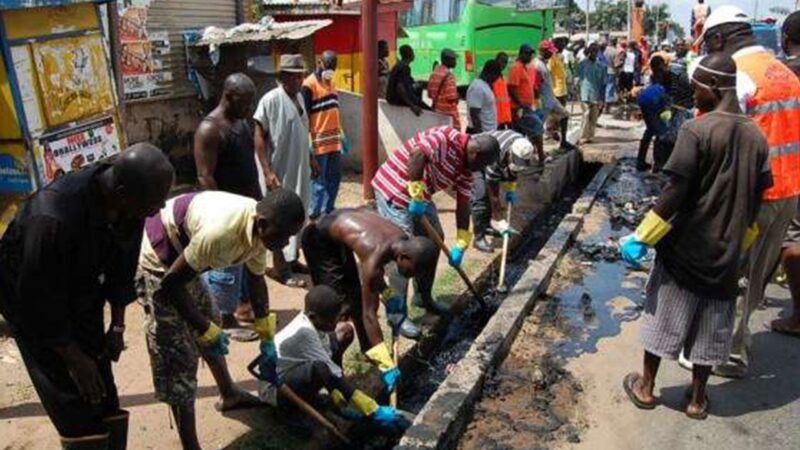National Issues
Enhancing Hygiene and Public Health: The Importance of Monthly Sanitation in Maiduguri Metropolis -By Abdussalam Mulima
The impact of monthly sanitation in Maiduguri Metropolis on public health is significant. By regularly removing waste and maintaining clean drainage systems, the risk of diseases associated with poor sanitation is reduced. Cleaner streets and public spaces also contribute to a healthier and more pleasant living environment.

Maintaining a clean and hygienic environment is essential for the well-being of any community. In Maiduguri Metropolis, located in the northeastern region of Nigeria, monthly sanitation initiatives play a crucial role in promoting public health, improving the quality of life, and preserving the natural surroundings.
Sanitation is more than just keeping streets clean; it encompasses various activities aimed at promoting hygiene and preventing the spread of diseases. The lack of proper sanitation can lead to the outbreak of diseases such as cholera, typhoid, and dysentery. In densely populated areas like Maiduguri Metropolis, effective sanitation is vital to maintaining public health.
Maiduguri Metropolis, like many other Nigerian cities, has adopted the practice of monthly sanitation. Typically, on the first Saturday of each month, residents come together to clean their homes, streets, and public spaces. During this period, businesses and commercial activities are temporarily suspended to allow everyone to participate.
One of the primary focuses of monthly sanitation is proper waste disposal. Residents are encouraged to gather and dispose of garbage in designated locations, which is then collected and managed by the municipal authorities. This helps prevent the accumulation of waste, which can lead to environmental degradation and the spread of diseases.
Clearing clogged drains and canals is crucial to prevent flooding during the rainy season. Proper drainage maintenance also reduces the breeding grounds for disease-carrying vectors, such as mosquitoes.
Monthly sanitation initiatives serve as a platform for educating the community about the importance of hygiene and sanitation. Information on best practices for personal and environmental cleanliness is disseminated, leading to increased awareness among the residents.
The impact of monthly sanitation in Maiduguri Metropolis on public health is significant. By regularly removing waste and maintaining clean drainage systems, the risk of diseases associated with poor sanitation is reduced. Cleaner streets and public spaces also contribute to a healthier and more pleasant living environment.
Beyond its public health benefits, monthly sanitation also has economic advantages. A cleaner environment attracts businesses and investors, leading to economic growth. Additionally, reduced healthcare expenses related to sanitation-related illnesses free up resources for other essential services.
While monthly sanitation initiatives have made a positive impact, there are challenges to overcome. These include community participation, enforcement of sanitation laws, and infrastructural limitations. To address these challenges, it is essential to continue raising awareness about the importance of sanitation, strengthen law enforcement, and invest in infrastructure improvements.
Monthly sanitation in Maiduguri Metropolis is a vital component of public health and well-being. By fostering a cleaner environment, reducing the risk of disease, and promoting hygiene, these initiatives contribute to a better quality of life for the residents. It is imperative to continue supporting and improving these efforts to ensure a cleaner and healthier future for Maiduguri and its people.
Abdussalam Mulima student of Mass Communication department Borno State University, Maiduguri.




















